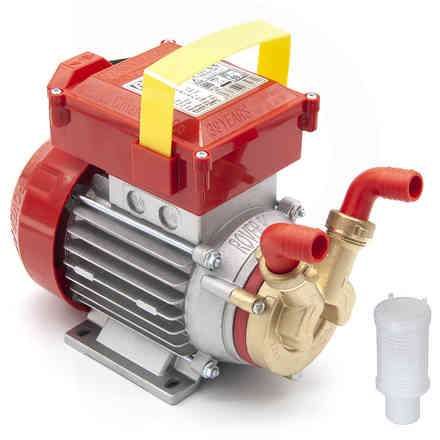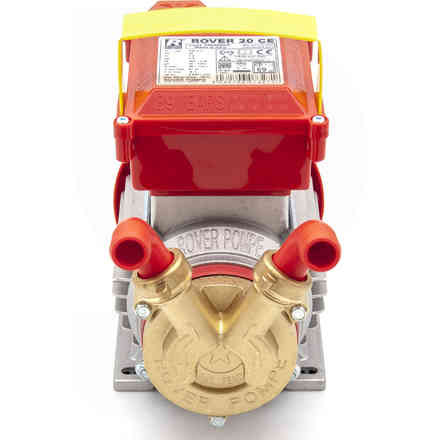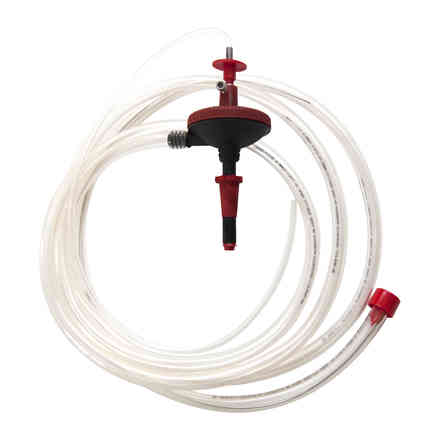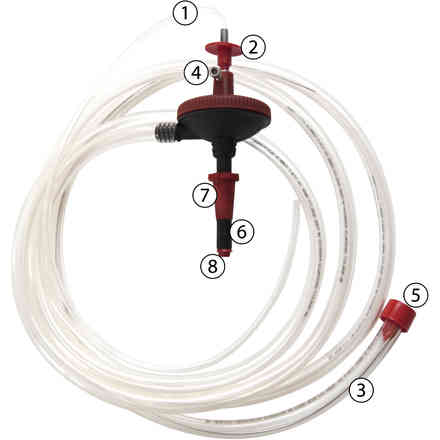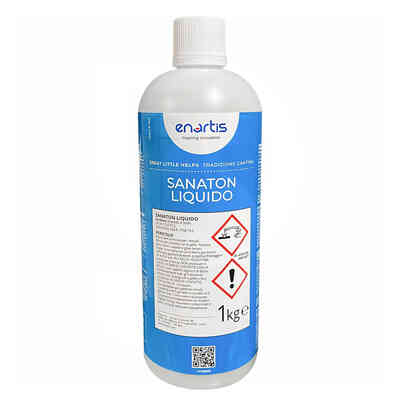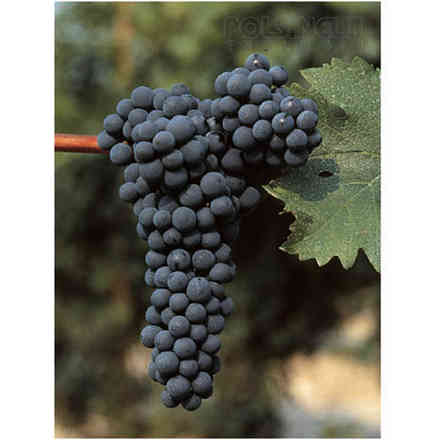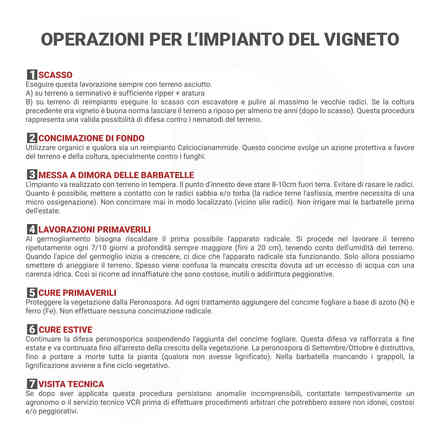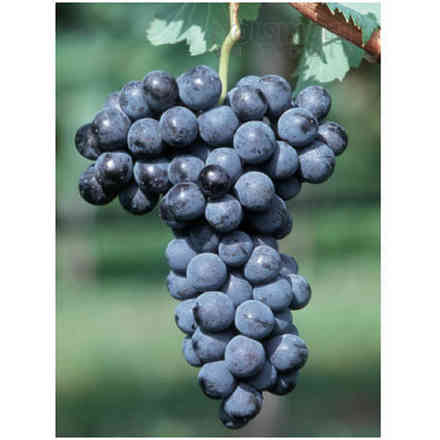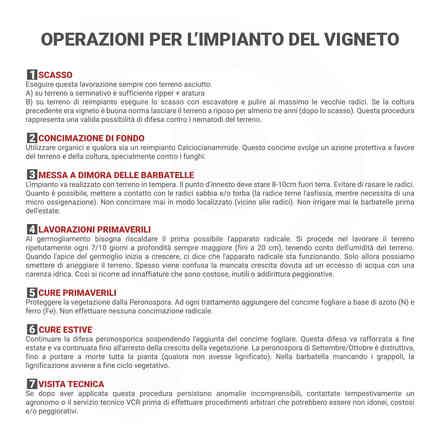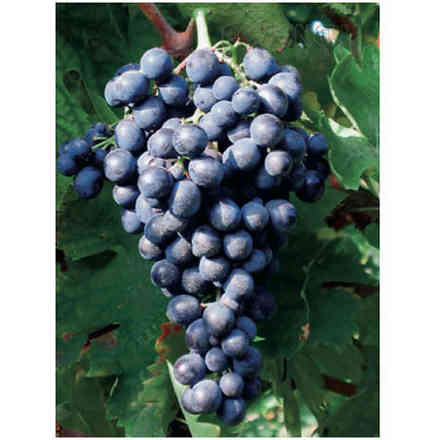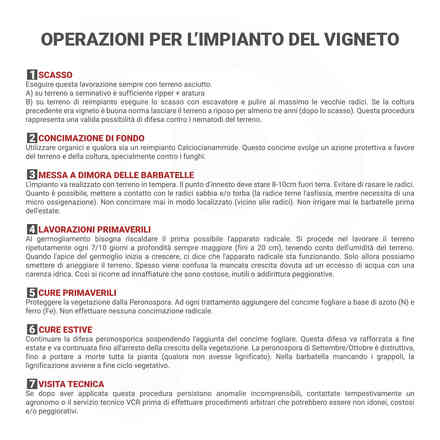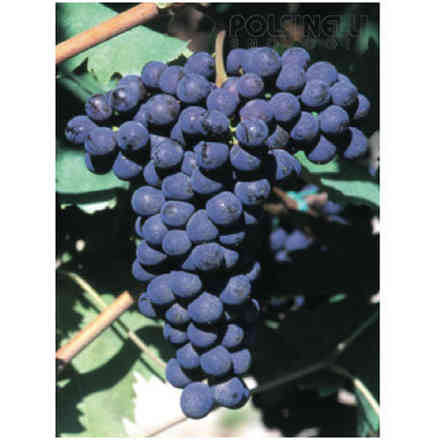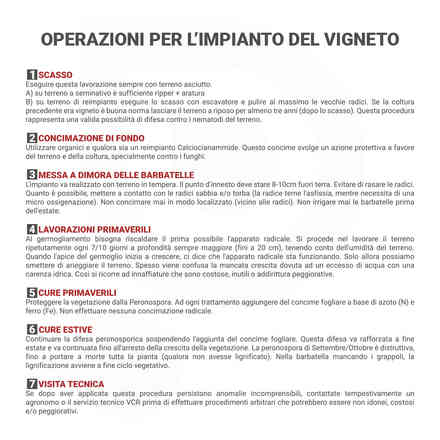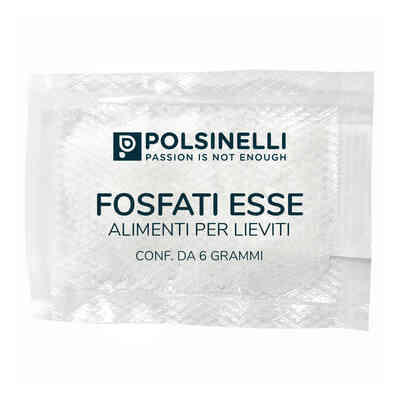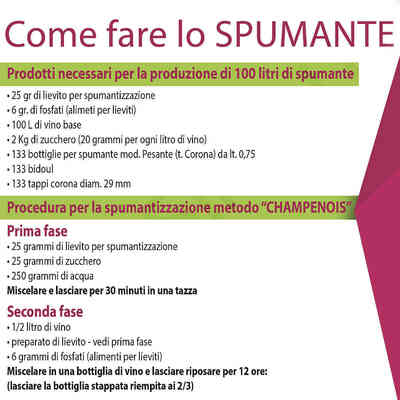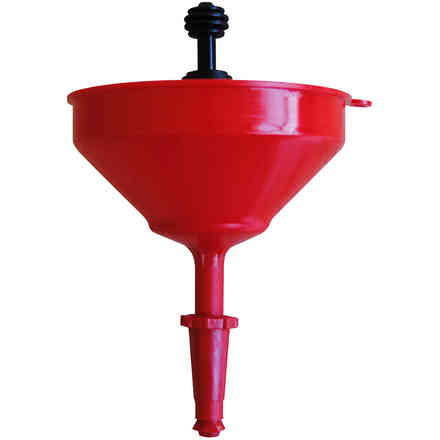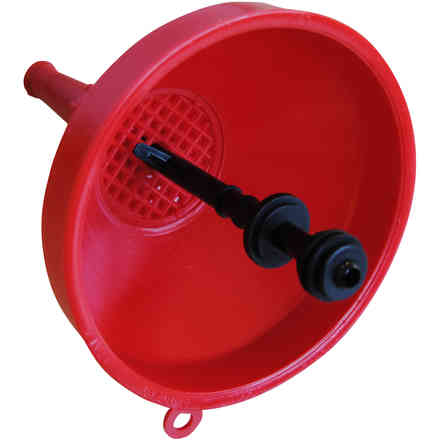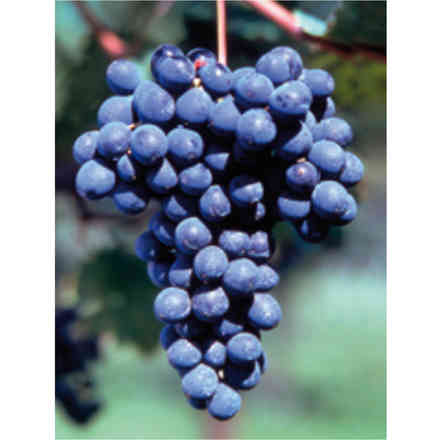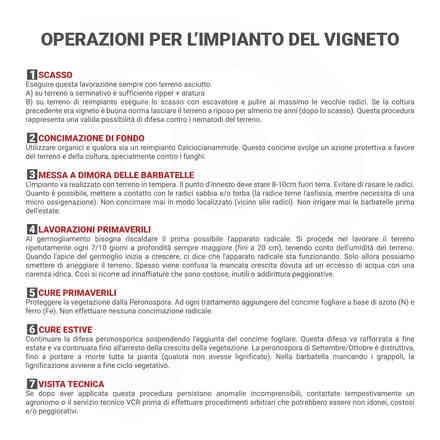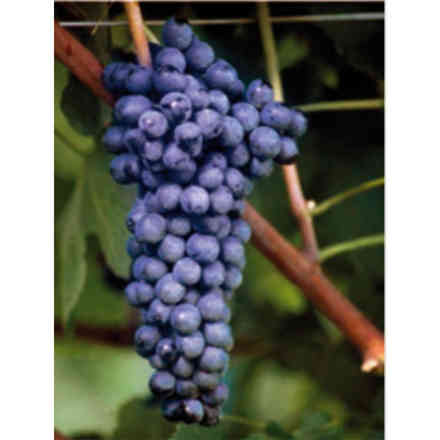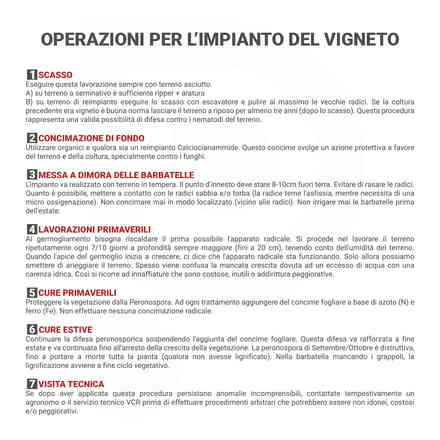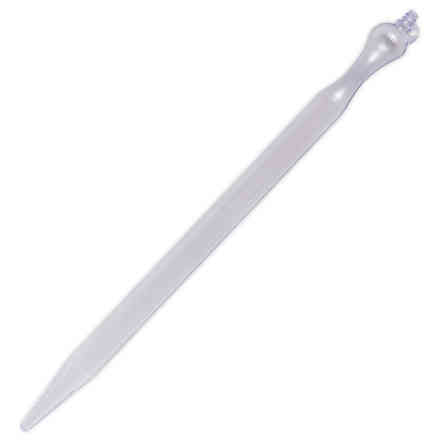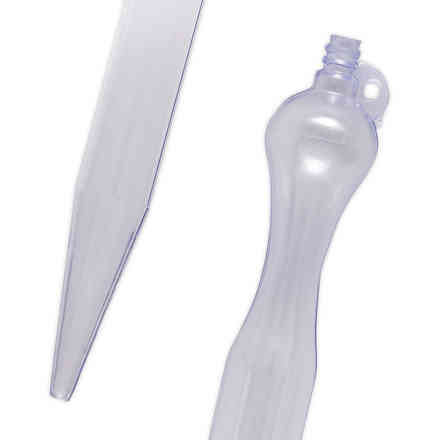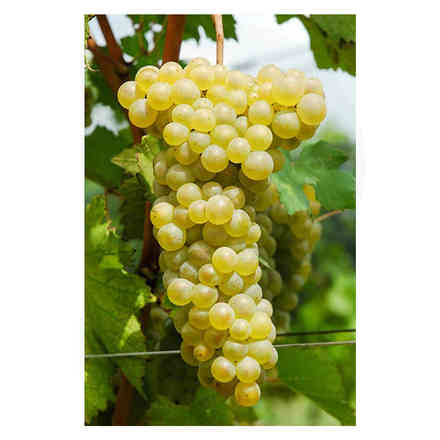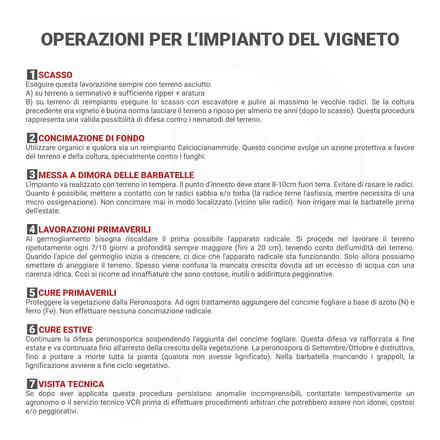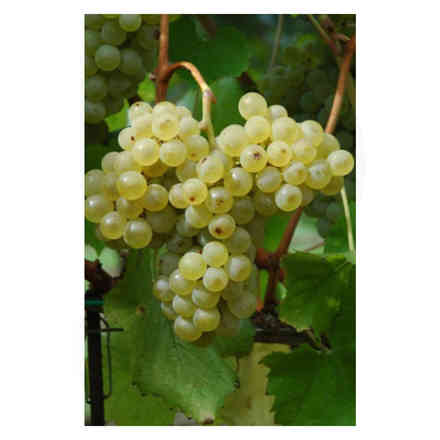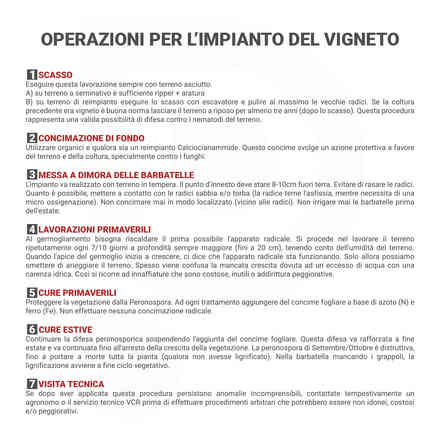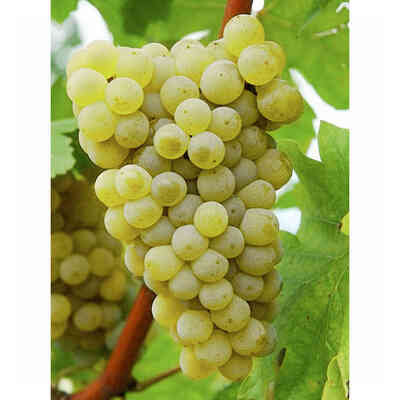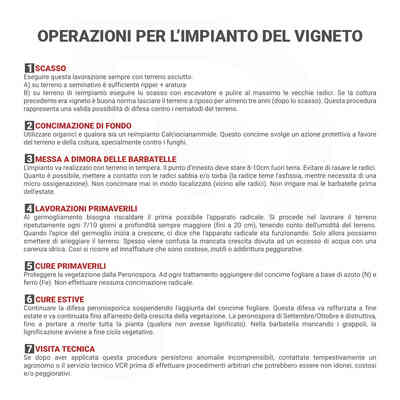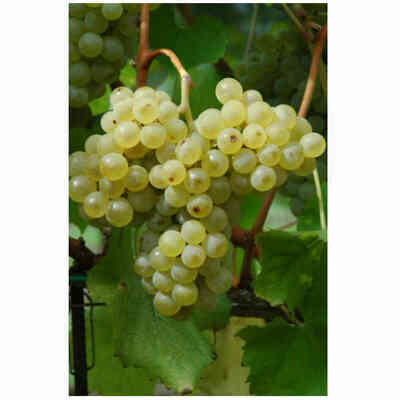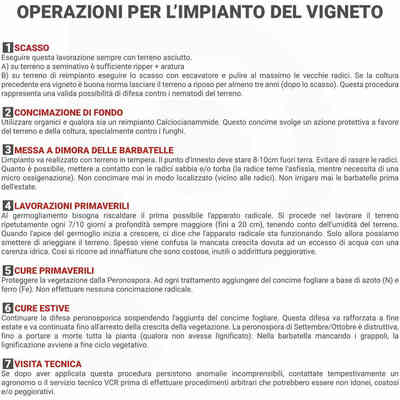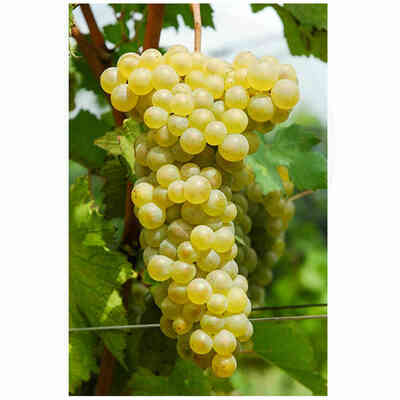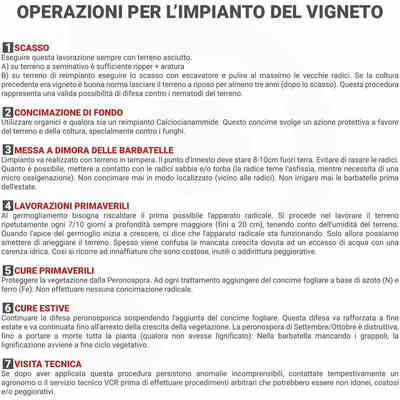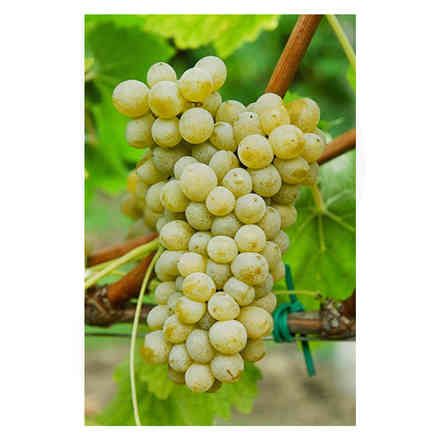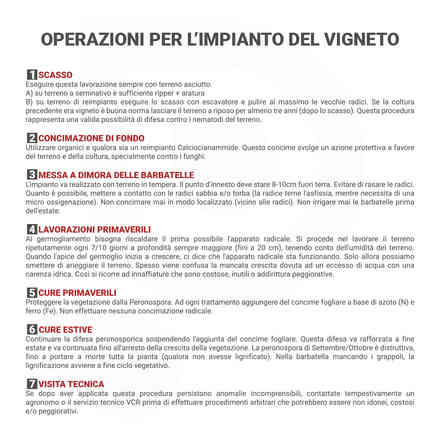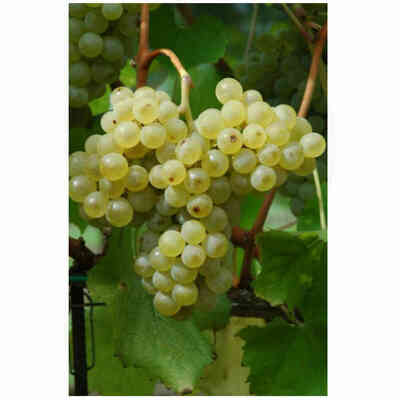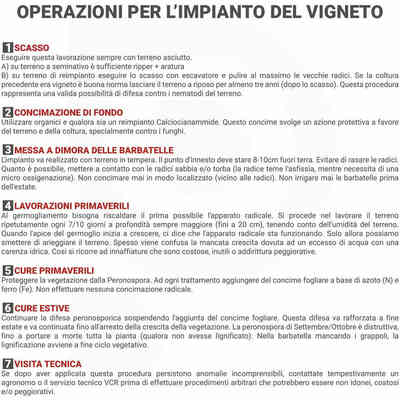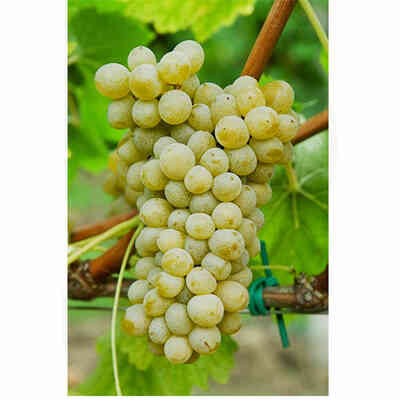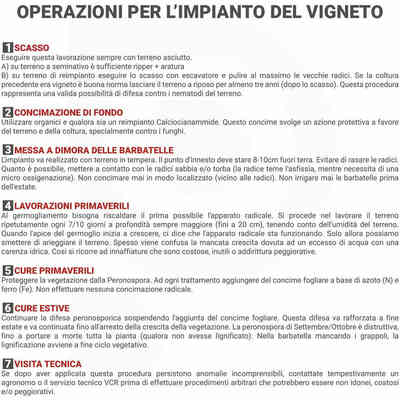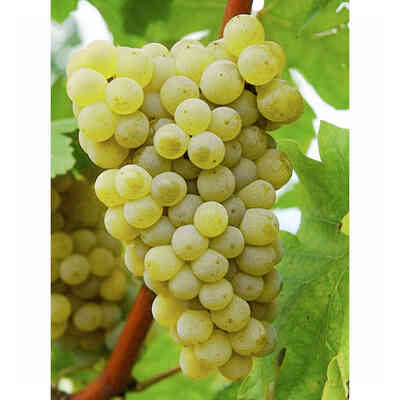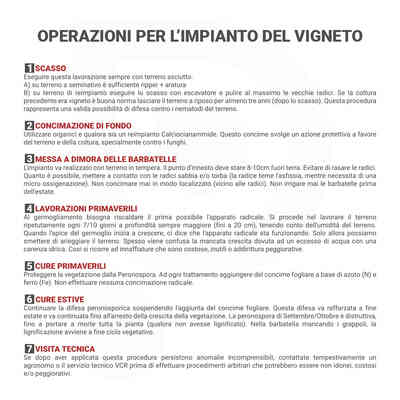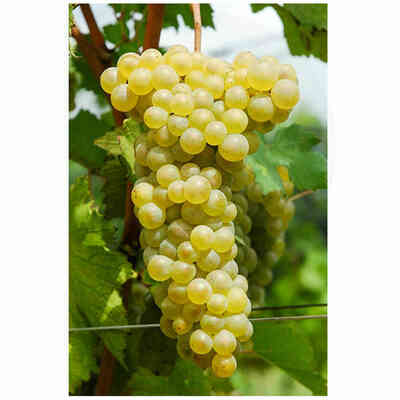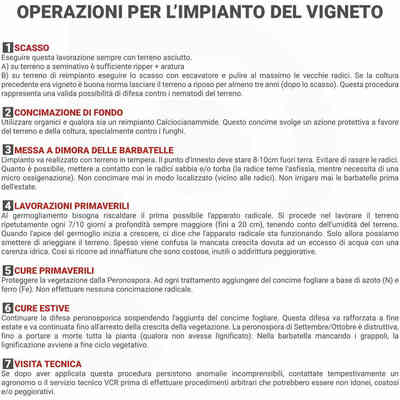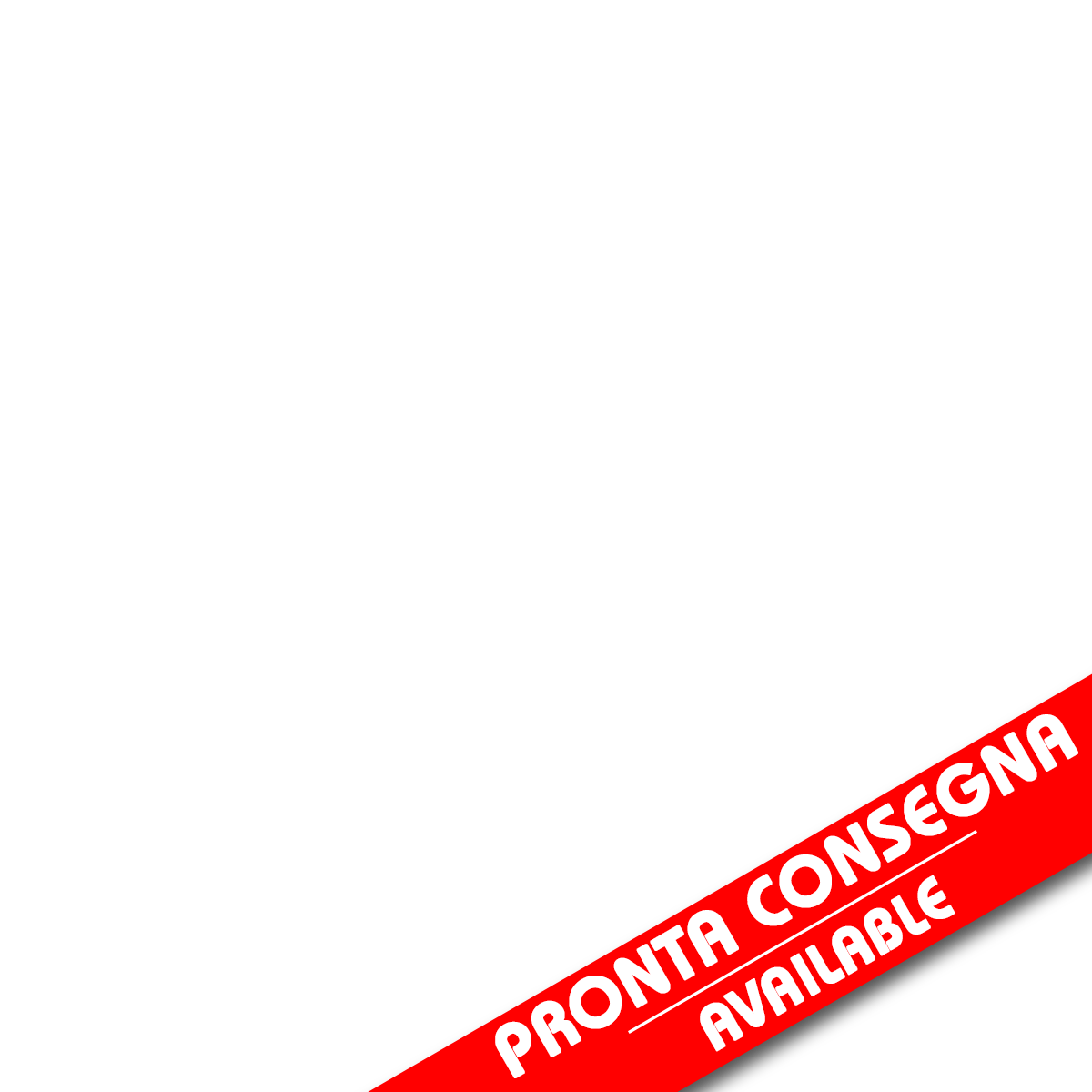
Chardonnay (10 pieces)
Description
 AUTHORIZED RETAILER
AUTHORIZED RETAILER
Barbatella Chardonnay (10 pieces)
Rootstocks 1103P - K5BB - S04 - 140RU - 420A (We will send the graft carrier available at the time)
A grape variety of French origin, originally grown in the Champagne and Burgundy areas, it has spread widely in the various wine-growing areas of the world. According to OIV estimates, the world area under Chardonnay in 2000 was about 100,000 hectares.
- Ampelographics: the variety is fairly homogeneous, the main differences being in the more or less pronounced productivity and the organoleptic components of the grapes. Bud with expanded apex, yellowish-green, slightly tomentose. Leaves are medium-sized, rounded, almost entire, slightly blistered, dark green, with little tomentum, open U-shaped petiolar sinus with ribs delimiting the boundaries of the grape.
- Open U-shaped sinus with veins delimiting the base at the petiolar point. The bunch is medium-sized, truncated-cone shaped, with an evident wing and is fairly compact. Berry medium, golden-yellow in colour; skin of medium consistency.
- Cultivation skills: vigorous vine, robust shoots with short internodes, upright vegetation that tends to be balanced. Adapts to different types of soil and climates, as long as they are not too humid. Avoid growing in excessively dry conditions.
- Cultivation and pruning: adapts to various forms of cultivation, including fully mechanised ones, and to different planting patterns, provided they are not too narrow. It can be pruned short in the south or medium-long in the north as long as the plant has a balanced number of buds. In the more humid northern climates, adequate green pruning is necessary for regular ripening of the grapes and to avoid the onset of botrytis and acid rot.
- Sprouting time: early.
- Ripening time: early.
- Production: average and constant with all forms of cultivation; with long, rich pruning it can become abundant but at the expense of product quality.
- Sensitivity to disease and adversity: normal, a little sensitive to botrytis in the north and in wet years; sensitive to vine phytoplasmas. Very resistant to chlorosis. Sensitive to late frost. In particular pedoclimatic situations it can show incompatibility with 3309C and Gravesac.
- Oenological potential: produces a wine with a typical varietal flavour, straw-yellow in colour with golden highlights, with delicate aromas and fragrances, full-bodied, suitably acidic, with good alcohol content.
- Excellent as a sparkling wine base; vinified in white it takes on a straw-yellow colour. Its use in blending leads to interesting improvements in other wines that tend to be neutral.
Clones in multiplication: Chardonnay R 8, VCR 4, VCR 6, VCR 10, VCR 11, ISV 1, ISV 4, ISV 5, SMA 108, SMA 123, SMA 127, SMA 130, ISMA 105, STWA 95-350, STWA 95-355; French clones: Inra-Entav 75, 76, 95, 96, 117, 121, 132, 277, 548, 809.
CULTIVATED AREA IN ITALY
YEAR 1982 1990 2000 2010
HECTARES 172 6,180 11,773 24,095
CULTIVATED AREA IN FRANCE
YEAR 1968 1979 1988 1998 2006
HECTARES 9,805 13,042 19,869 33,070 42,017
RULES TO PLANT A VINEYARD
1. PLOW
You must perform this operation always with dry soil
A) On arable land is generally sufficient to ripper + to plow
B) On planting soil is generally sufficient to plow with an escavator and to clean the old roots.
If the previous crop was a vineyard, it is a good idea to leave the soil fallow for at least three years (after plowing). This procedure represents a valid possibility of defence against soil nematodes.
2. SOIL FERTILIZATION
Use organics and if it is a reimplantation, use Calciumocyanamide.
This fertiliser has a protective effect on the soil and the crop, especially against fungi.
3.PROPAGATING GRAPE VINE CUTTINGS
The planting should be carried out in temperate soil. The grafting point should be 8-10 cm above ground. Avoid shaving the redices. As much as possible, put sand and/or peat in contact with the roots (the root fears asphyxiation, while it needs a micro-oxygenation). Never fertilize in a localized manner (near the roots). Never water the rooted cuttings before summer.
4.SPRING WORKS
When sprouting, the root apparatus must be heated as soon as possible. Work the soil repeatedly every 7/10 days at increasing depth (up to 20 cm), taking into account the moisture of the soil. When the apex of the bud starts to grow, it means that the root system is functioning. Only then can we stop watering the soil. Failure to grow due to access to water is often confused with a lack of water. This is why watering is used which is expensive, useless or even worse.
5.SPRING CURE
Protect vegetation from Peronospora. To each treatment add nitrogen (N) and iron (Fe) foliar fertilizer. Do not make any radical fertilization.
6.SUMMER CURE
Continue with the defense against Peronospora by suspending the addition of the foliar fertilizer. This defense should be reinforced in late summer and should be continued until vegetation growth stops.
The September/October blight is destructive, to the point of bringing death to the whole plant (if it has not lignified). The rooted vine lacks clusters, so lignification occurs at the end of the vegetative cycle.
7.TECHNICAL VISIT
If incomprehensible anomalies persist after this procedure, contact an agronomist or the VCR Technical Service promptly before carrying out arbitrary procedures which may be unsuitable, expensive and/or worsening.





















